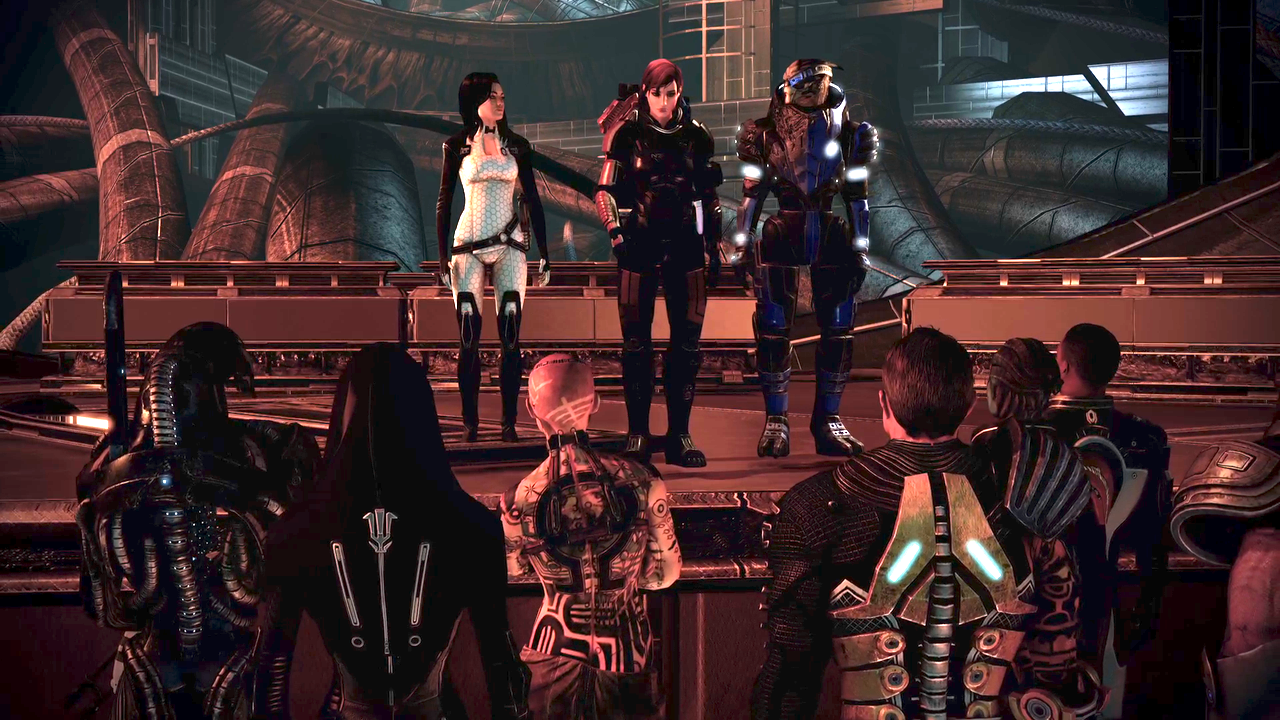What can Mass Effect 2 Teach us about Motivational Speaking
Commander Shepard's speech in Mass Effect 2 is a great example of leadership communication. How does empathy, purpose, and a strong call to action inspire a team to face overwhelming odds together?

In the world of well-crafted video games, storytelling and leadership often blend into moments that resonate far beyond the screen. One powerful example comes from Mass Effect 2, where Commander Shepard’s speech before the final mission exemplifies how clear and empathetic leadership communication can drive collective action. This speech is a prime example of motivating a team to face overwhelming odds, and it underscores key principles that can translate directly into real-world leadership.
"We've lost some good people. They gave everything to get us here. It's up to us to make it mean something and do them justice. The Collectors, the Reapers--they aren't a threat to us. They're a threat to everything--everyone. Those are the lives we're fighting for. That's the scale. It's been a long journey, and no one's coming out without scars. But it all comes down to this moment. We win or lose it all in the next few minutes. Make me proud. Make yourselves proud."
His words serves as a powerful example of motivational speech. Looking at the research behind motivation speech and leadership communication, we find three recurring themes :
- Empathy or Emotional Connection: The spearker understands and acknowledges the feelings, challenges, and needs of the audience. This element helps in building trust and rapport, showing the audience that the speaker genuinely cares and understands them.
- Clarity of Vision or Purpose: The speaker clearly articulates the goal, vision, or purpose behind the message. This provides direction and helps the audience understand the bigger picture and their role within it.
- Call to Action: The speaker provides a clear, actionable path forward that motivates and inspires the audience to take specific steps. This transforms inspiration and motivation into actual actions.
In his speech, Shepard begins by acknowledging the collective effort and the challenges the team has faced. This recognition of shared experiences and struggles serves to create an emotional bond between Shepard and the crew. By openly discussing the risks and affirming their voluntary commitment to the cause, Shepard validates the crew's fears and concerns, fostering a sense of solidarity. This empathy sets the stage for a more impactful message, as it assures the crew that their leader understands and appreciates their sacrifices. This is one of the core principle found in "The Art of Public Speaking" by Dale Carnegie.

Shepard clearly articulates the mission's significance—not just as a military objective but as a noble cause with far-reaching implications for the galaxy. By framing the mission as a pivotal moment in their lives and the lives of countless others, Shepard provides a compelling vision that transcends personal survival or glory. This clarity of purpose motivates the crew by giving their actions context and meaning, emphasizing the importance of their role in the larger narrative of the galaxy's survival. This is expertly explained by Simon Sinek’s book "Start With Why".

The speech culminates in a powerful call to action, urging the crew to channel their determination, teamwork, and courage into the mission ahead. Shepard's appeal to "Make yourselves proud" serves as a rallying cry that focuses the crew's energies and prepares them for the challenges ahead. This call to action is not just about following orders; it's an invitation to be part of something greater, to actively contribute to a cause worth fighting for. This is an important lesson of “Talk Like TED: The 9 Public-Speaking Secrets of the World’s Top Minds” by Carmine Gallo.

The art of using communication to motivate, whether it's engaging players in a video game or inspiring employees in the workplace, hinges on similar foundational elements. These parallels underscore a universal truth: motivation flourishes where there is empathy, clarity, and actionability. Whether guiding a digital avatar towards a grand quest or leading a team towards operational goals, the principles of crafting a compelling narrative and a clear path forward remain strikingly consistent.







